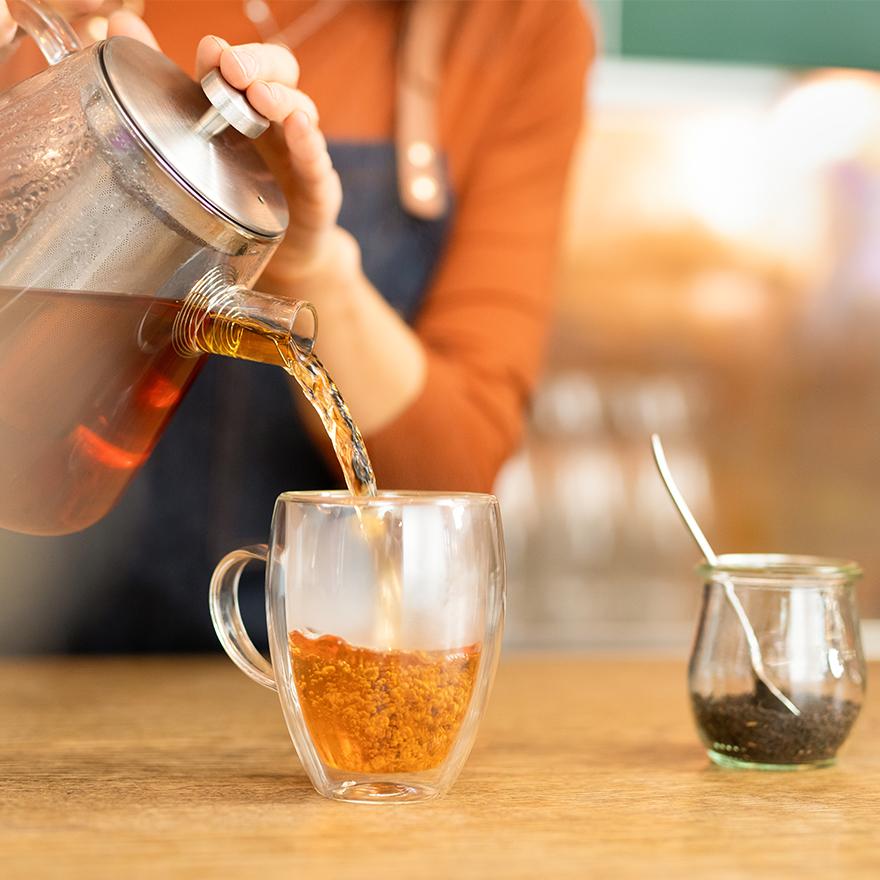
What affects the boiling point of water?
Water's boiling point is influenced by atmospheric pressure. Therefore, at higher altitudes, where atmospheric pressure is lower, water will boil at a lower temperature. This is because the lower pressure makes it easier for the water molecules to escape their liquid form.
How long does water take to boil?
The average kettle, with a power rating between 2,000 and 3,000 watts, will boil a litre of water in 3-4 minutes. On an open hob, it may take a couple of minutes more. However, the time it takes for water to boil largely depends on the amount of water and the heat source. Larger volumes take longer to reach boiling point due to more molecules needing heat, while smaller amounts heat up faster. Naturally, water will boil quicker at higher temperatures compared to lower heat, which takes longer to reach boiling.
How to boil water
To boil water, it must be exposed to a heat equal to or above its own boiling point of 100°C. This can be done either over a fire, on an electric hob, in a kettle, or a boiling water tap. If using a hob or fire, ensure your water is in a heat-safe container, remove it from the heat, and switch any appliances off once finished.
Related: Boiling Water Tap vs The Kettle
Does boiling water make it safe to drink?
Boiling water has been a trusted method for centuries to make water safe to drink, long before modern filtration and treatment technologies. It not only improves taste but makes water more hygienic and safer for drinking by killing harmful bacteria, viruses and pathogens and reducing impurities. Drinking water while it is still hot also offers several benefits, including helping digestion and bloating and aiding natural detoxification in the body.
What happens when water goes above its boiling point?
When water is heated above its boiling point of 100°C, it transitions from a liquid into a gas, creating steam or water vapour
Can you boil sparkling water?
Sparkling water can be boiled, but doing so will cause it to lose its carbonation, turning it from sparkling to still. The heat causes carbon dioxide, which creates the bubbles, to escape.
Enjoy boiling water instantly with a boiling water tap
Boiling water taps provide instant access to hot water at the touch of a button. They are often connected to a dedicated tank that stores water at a near-boiling temperature of around 93°C, allowing you to make hot drinks quickly and easily. Learn more about how hot water dispensers work.
What are the benefits of a hot water dispenser?
Hot water dispensers keep the water at this temperature rather than at boiling point for several reasons:
- Safety: Keeping the water slightly lower than boiling reduces the risk of burns and accidents. Water at 93°C is hot enough to kill most bacteria, but with BRITA, you can be sure your drinking water is always safe. Our water comes straight from your mains, already meeting safety standards. Plus, all BRITA hot water dispensers are equipped with our advanced filter, removing 99.999% of bacteria for peace of mind with every sip.
- Efficiency: As the water is kept in a small hot tank, only the amount needed is heated, making it an energy-efficient option compared to kettles or hobs. Water at 93°C is also hot enough for making tea, coffee and cooking and consumes less energy to reach than fully boiling.
- Taste: Boiling temperatures can damage the taste of hot drinks such as tea and coffee. 93°C ensures an optimal temperature for brewing, helping to preserve taste.
Read more about the benefits of hot water dispensers and how they can improve your workspace.
Browse our range of hot water dispensers for homes, or explore our range of commercial hot water dispensers and get in touch for a personalised quote.




